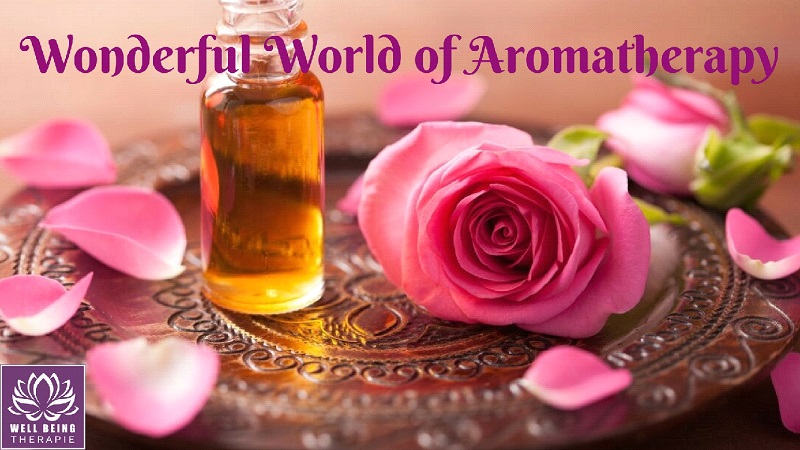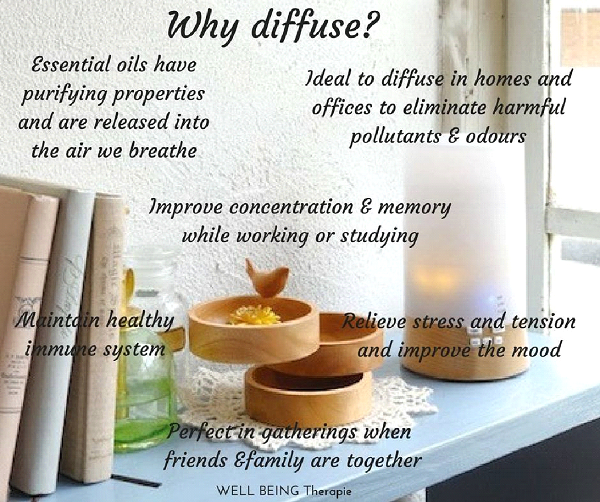
How to use essential oils
1. Topical Application
Because essential oils are easily absorbed by the skin they can be safely applied topically on the skin, to the areas of concern, used in aromatherapy massage and reflexology.
The oils can be added to bathwater, personal care products such as shampoos, conditioners, natural body lotions and creams etc.
Always follow the guidelines for dosages and make sure you dilute essential oils with a carrier oil (almond, grape seed, fractionated coconut oil, jojoba etc.) according to an essential oils dilution chart.
You can download a dilution chart here: http://tisserandinstitute.org/essential-oil-dilution-chart/
2. Aromatic Inhalation
If you have ever enjoyed the scent of a rose then you’ve experienced the aromatic qualities of essential oils!
Essential oils can be diffused in the air in popular aroma diffusers, inhaled from a bottle, cupped hands or a tissue and put in a bowl of hot water and inhaled.
A few drops of essential oil in an aroma diffuser also purifies the air, eliminates unwanted odours and some airborne pathogens.
When inhaled some oils can be stimulating and uplifting (such as peppermint, eucalyptus, rosemary and citrus oils), while others can be calming and soothing (such as lavender, roman chamomile, frankincense, rose) affecting our emotions and moods.

Internal application of essential oils
Internal usage of essential oils is the most controversial topic amongst aromatherapy experts.
Even in France where aromatherapy is practiced more aggressively and essential oils are prescribed for internal use by qualified Aromatherapists, apparently more and more therapists are moving away from this method of use.
Today essential oils are widely used in the food industry, meaning we ingest them every time we consume flavoured foods and drinks. These are ‘food grade essential oils’ that don’t have the benefits of the pure medicinal therapeutic grade essential oils used for healing but rather provide the desired aroma and flavour.
Only the highest quality, pure, therapeutic grade essential oils that are free from synthetic fillers and contaminants, fertilisers and pesticides, solvents (hexane) and are purchased from a trusted company/source, should be utilised this way and even then with a caution and under the guidance of a qualified professional.
Essential Oil quality
In reality the essential oil industry is hugely unregulated resulting in the market being saturated with synthetic fragranced oils, poor quality, diluted and adulterated oils labelled and marketed as pure essential oils.
Fragranced oils are highly toxic and harmful to our health and should not be used in any form.
However most aromatherapy candles, diffuser sticks, incense, air refreshers, to name the most popular, are nothing but synthetic fragrances that can cause headaches and nausea, respiratory issues, allergies, act as hormone disruptors and are even carcinogenic.
So bear in mind, not all oils are created equally!
The purity and potency of the oil is essential in providing desired results therefore it is advisable to buy your oils from a company/source you can trust.
If the oil is going to be of a high quality and potency it very much depends on the conditions the plants were grown in, such as the soil conditions and the plants natural habitat, when and how the plants were harvested and how the plant material was processed.
A little less than two years ago I was doing more research about essential oils and came across a company committed to deliver the highest quality oils they possibly can through ethical sourcing and multiple testing to ensure their purity and potency. That resonated with me on many levels and I’ve been using these oils with much success since.
I’m not saying there aren’t other good essential oils on the market but rather encouraging everyone to do their own research before purchasing.


